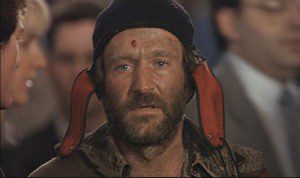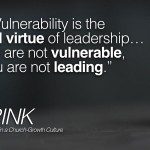 In Arthurian legend, The Fisher King is the latest in the line of kings chosen to live in the Grail Castle, guarding and protecting the Holy Grail. But the Fisher king is not a valiant quester like Arthur and his knights. The Fisher King is not actually whole. He has been wounded, uncomfortably, in the groin; an impotence that seems to extend to his entire kingdom. Unable to move about, he cannot participate in games, cannot go to war, cannot even hunt. His only pleasure is to sit beside a stream near the castle and fish, and wait for someone to come heal him, restore him, and make him whole.
In Arthurian legend, The Fisher King is the latest in the line of kings chosen to live in the Grail Castle, guarding and protecting the Holy Grail. But the Fisher king is not a valiant quester like Arthur and his knights. The Fisher King is not actually whole. He has been wounded, uncomfortably, in the groin; an impotence that seems to extend to his entire kingdom. Unable to move about, he cannot participate in games, cannot go to war, cannot even hunt. His only pleasure is to sit beside a stream near the castle and fish, and wait for someone to come heal him, restore him, and make him whole.
What makes the Fisher King so interesting is not his role as protector of the grail, but the wounds with which he struggles. The legend provides the thematic underpinning for my favorite Hemingway novel, The Sun Also Rises, my second favorite T.S. Eliot poem, “The Wasteland,” (after “The Love Song of J. Alfred Prufrock”), and one of my favorite Robin Williams films, The Fisher King.
The story of The Fisher King could serve as the grounding narrative for Williams’ life.
WOUNDS
Possessed of the kind of creative talent and energy instantly recognizable as rare, Williams seemed destined to become a great actor. His family was terribly wealthy. His grandfather on his mother’s side was a governor and senator from Mississippi. His father was a senior executive at the Ford Motor Company. He was prep-school, Claremont, Julliard, and then Hollywood. But he had a deep wounding, multiple woundings perhaps.
Williams’ father was 46 when he was born. His mother was an aspiring model, and a philanthropic society aficionado. Both parents brought older children to the marriage. Williams grew up, in large part, alone. “I’m just beginning to realize that it wasn’t always that happy,” Williams admitted in a 1989 interview with Esquire Magazine. “My childhood was kind of lonely. Quiet. My father was away; my mother was working, doing benefits. I was basically raised by this maid, and my mother would come in later, you know, and I knew her and she was wonderful and charming and witty. But I think maybe comedy was part of my way of connecting with my mother—‘I’ll make mommy laugh and that will be okay’—and that’s where it started.” (Robin Williams: A Biography by Andy Dougan, p. 8)
Williams’ first impersonation—a skill that later made him famous—was of his own grandmother, an attempt to make his mother laugh. The Fisher King was wishing for someone to notice him, to make him whole.
As a child Williams struggled in school, and was overweight and plagued by low self-esteem. He had both dyslexia and Attention Deficit Disorder (ADD), in a time when the diagnosis of those processing styles was rare, and the treatment of them largely ineffective. More wounds. Williams lived with a lot of shame and the intense feeling of being different. Humor was his way of diffusing the tension and connecting with others. Like many kids with learning issues, Williams found other ways to fit in. Wrestling, soccer, track became healthy outlets.
The rest you know. An improvisation class in college led him to Julliard. His training there led him to the LA comedy clubs, a spot on Happy Days, and his own television series, Mork & Mindy. (Full disclosure: I had my own pair of rainbow suspenders).
In retrospect, what is so often cited about that Mork & Mindy period is that first, he became a household name, and second, he began a lifelong struggle with alcohol and drugs. Fair enough. But I think the most remarkable aspect of Robin Williams’ career is that he successfully made the leap from kitschy-sitcom star, to box-office success. It’s not an easy jump to make (just ask Steve Urkel, Mike Brady, or Lucille Ball). Williams found a way to transform the big break that was Mork & Mindy fame into a legitimate film-acting career including many great movies: Good Morning Vietnam, The Fisher King, Aladdin, Dead Poets Society, and Goodwill Hunting just to name a few.
His talent was undeniable. But it was his wounding that made him great. Dyslexia, ADD, his weight, a lonely childhood, addiction to alcohol and Cocaine, and now we learn the inner darkness called severe depression that finally consumed him; all of it comprised the deep wounding that was the secret to his success.
Look at old clips of Williams on the Tonight Show. It’s almost uncomfortable to watch. There’s something abnormal about watching an actor bring that much energy to a talk show. Almost like he’s trying too hard; a stream of conscious explosion that would be completely obnoxious if it wasn’t so dang funny. With that much energy trained on making other people laugh, you instantly knew there was some deep darkness going on underneath the surface.
That’s almost certainly what the cocaine and alcohol was about. Cocaine has been called a near perfect ADD medicine (apart from the nasty addictive properties). Untreated dyslexia is highly correlated with low self-esteem, aggression, anxiety, and other social and behavioral struggles. The standup, the improv, the acting, it was like drug therapy for Williams. The emotional pain he experienced growing up was channeled into an amazing cultural art form.
But it only took a quick glance to know that he was working from a deep well of inner darkness. Perhaps that’s why, when he played some of the really understated dramatic roles such as he did in Goodwill Hunting and Dead Poets Society, he gave such remarkable performances. It was mesmerizing to watch. When somebody that energetic grew that quiet, it was impossible not to respond as a viewer.
It was his wounding that made him great. Sadly the very wounds that made him great, finally overcame him.
VULNERABILITY
“Mork calling Orson. Come in Orson.” It’s how every single Mork & Mindy episode ended. As an audience, our first glimpse behind the Robin Willaims curtain came by way of Mork’s weekly unguarded report to his boss Orson on the planet Ork. Mork would call home to his boss Orson & report in on what he had learned that week. Williams spend 20 minutes each episode going absolutely nuts. It’s said that producers used to leave large chunks of the script blank, just saying, “Mork does his thing for 20 seconds; Mork does his thing for 15 seconds.” But for a few moments at the end of every episode he would attempt to be serious. I never missed that part of the show. It was just Mork in his red space suit on a black screen. He’d talk about the deeper things of life, reflect on what it means to be a human, and he’d crack only a few little jokes. He was vulnerable. That’s the Williams we loved. That’s the Robin Williams we recognized as representing something we wanted to be. Without that vulnerability, the show was just an alien version of Gilligan’s Island with a much more talented Gilligan. It was his vulnerability that made him great.
Author and researcher Brene Brown says that when people describe what vulnerability feels like, they use words like excruciating, awful, painful. When they describe what vulnerability looks like from the outside, they call it raw courage. That’s the affect to which we all responded when we watched him get quiet and start to really share. You could tell it was genuine. He wasn’t acting anymore. He was being real.
Nobody could be that ‘up’ all the time. They’d blow a gasket. There had to be a dark side. We loved him because he had the courage to let us see the dark side. The energy, the voices, the characters the indomitable animation that was his public personality, comedic and acting style had its alter ego, and Williams’ singular brilliance was the courage to let us see his true self, warts and all. Throughout his career it was not the zany-crazy Williams who won the hearts of fans. It was the vulnerable man who let us catch a glimpse of his own pain.
In the false world of Hollywood, he gave the sense that there was still something genuine.
It is a false world, by the way. Hollywood is an illusion. Fame, stardom, affluence, the worlds the films create, the final product we watch while gorging on popcorn—it’s all fantastic. During filming, every line of dialogue is delivered a dozen times, each with slight variations in tone, inflection, wording… then the snippets are culled, sequenced, scored, enhanced, and patched together in an editing studio. It is an illusion. They’re actors. And yet when we watched Robin Williams’ work, something about it seemed very real. We saw something candid, something genuine, something sincere—even if it was sincerely dark.
Carpe diem—sieze the day. It’s cliché. And yet when someone with the passion and vulnerability of Robin Williams said it, we wanted to try. He was compelling. And even though we knew it was make believe, a movie produce in the most plastic and saccharine of places, we felt like he wasn’t full of crap, and we endeavored to take his advice.
SUICIDE
Williams was a coke addict with an insatiable appetite for Jack Daniels. He abused drugs and alcohol for years, and then one day he quit cold turkey. Williams said that the main factor in his decision to give up using drugs and alcohol was the birth of his first child, Zachary. But anyone who has to fight an addiction knows that you are never really over it. After nearly 20 years of sobriety, he fell off the wagon.
“I was in a small town where it’s not the edge of the world, but you can see it from there, and then I thought: drinking. I just thought, hey, maybe drinking will help. Because I felt alone and afraid. It was that thing of working so much, and going f*%#, maybe that will help. And it was the worst thing in the world… You feel warm and kind of wonderful. And then the next thing you know, it’s a problem, and you’re isolated.” (The Guardian)
The wounds always bring with them a certain amount of fear. The fear crept up on him again. “It’s just literally being afraid,” Williams said. “And you think, oh, this will ease the fear. And it doesn’t.”
There’s no reasoning with the darkness. Our wounds are as irrational as the coping mechanisms we embrace to help us get through the day. Addiction is like this, only more powerful. “It’s [addiction] — not caused by anything, it’s just there,” Williams said. “It waits. It lays in wait for the time when you think, ‘It’s fine now, I’m OK.’ Then, the next thing you know, it’s not OK. Then you realize, ‘Where am I? I didn’t realize I was in Cleveland.'” (ABC News)
Relapse. Rehab. Open heart surgery. Another divorce. Another trip to rehab. More work. Money problems. More criticism. Depression. Suicide.
Williams’ energy might have been his defining characteristic. I think his vulnerability in the face of his own wounding was the most compelling thing about his life and work. It’s what made him great to watch, and it’s what we should remember most about this tender, vulnerable actor.












